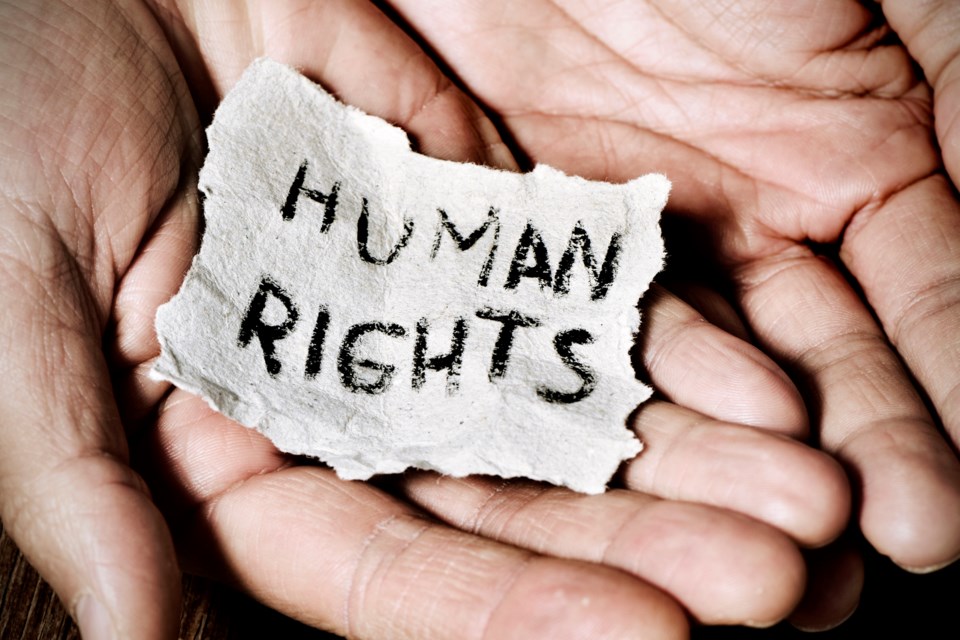China is using yet another Olympic Games as a political tool to reinforce its position as a global power and its dismal human rights record.
This was first seen in 2008, when China and the International Olympic Committee (IOC) made about the Olympic Games improving human rights in the authoritarian regime. But since then, the situation has worsened and continues to deteriorate.
The IOC continues to claim it is an , while and use the Olympics as a distraction from its . Few nations know how to politicize the Olympics quite like China.
A new sort of Cold War
In the United States, critiques of China have started to feel more like , leveraged for domestic political pandering, rather than a sincere desire to improve human rights in China, or the United States for that matter.
What is needed, as sportswriter Dave Zirin and political scientist Jules Boykoff aptly observed in , is:
“a mass independent current that can stand with the oppressed in the United States and in China, and that refuses to paper over structural inequalities on either side in order to win political points.”
Those familiar with Teng Biao (one of the authors of this piece) know that he has experienced both the of the Chinese state first hand.
As a vocal human rights lawyer, Teng resisted the authoritarian regime’s crackdowns on the freedoms of speech and expression, resulting in and a physical beating by authorities prior to the 2008 Olympic Games. He knows the stakes, and the costs, of standing up for human rights in China.
Boycott, boycott, boycott
For much of its existence, Communist China has . After the Chinese Civil War, the People’s Republic of China (PRC) made its debut at the 1952 Helsinki Olympics, leading the Republic of China (ROC) to withdraw in protest, furious that the Communist mainland was permitted to enter under the name of “China.”
This was a recurring theme at the Olympics until the 1980s. At the 1956 Melbourne Olympics, the the ROC competed while the PRC stayed home. And in 1958, the PRC formally withdrew from the Olympic Movement, rejoining in 1979. They only participated in the 1980 Winter Olympics however, joining the U.S.-led boycott of the 1980 Moscow Summer Olympics.
The PRC’s politicization of the Games worked. The IOC has made the ROC — now more commonly known as Taiwan — compete as Chinese Taipei since the 1984 Los Angeles Olympics, under an Olympic flag rather than the flag of Taiwan.
This has remained the Olympic status quo for over thirty years, despite the obvious fact that Taiwan functions as an independent, democratic nation.
The 2008 Beijing Olympics has a grim legacy. In , Teng Biao convincingly argued that China governs through “high-tech totalitarianism,” using artificial intelligence and other technologies to maintain “total control of Chinese society.”
Although Italian philosopher “states of exception” theory has typically been applied to disasters and other emergencies, political scientist has made a strong case for the extension of Agamben’s work to moments of jubilation and euphoria, particularly the Olympic Games.
A “state of exception” is similar to a state of emergency, except instead of the state’s ability to transcend the rule of law being invoked in an emergency, it is done in the name of public good.
It can open the door to a legally sanctioned eradication of not just political opponents, but anyone living on the margins of society. For Tibetans and Uyghurs, this rings all too true. In Tibet in particular, the Chinese government used the Olympic Games as an excuse to its suppression of language, religion, speech and peaceful protest.
As international relations scholar has shown, the Chinese government leveraged both the 9/11 attacks in the U.S. and the 2008 Olympics to re-frame peaceful Uyghur cultural protests — typically labelled as separatism — as a terrorist threat to justify their mass incarceration.
Since 2008, Tibet has been closed off to foreigners, but details of , , and a general assault on Tibetan culture are well-documented. For some, the situation has become too untenable to bear.
A total of 157 Tibetan monks and nuns have since 2009.
The IOC, politics and human rights
Despite China’s history of using the Olympics for political gain, the IOC has refused to intervene, going so far as to concerned with the possibility that official merchandise for the Beijing Olympics was being made with forced labour in the Uyghur Region.
Both the IOC and China have started framing all criticism as political matters, unfit for discussion at a so-called apolitical event like the Olympic Games.
Criticism of the disappearance, silencing and carefully choreographed re-emergence of is “just politics.” Criticism of policies aimed at the cultural eradication of Uyghurs and Tibetans, as well as China’s decision to have a Uyghur light the Olympic cauldron, are more “politics.”
But there must be a line drawn between politics and human rights. While the definition of politics depends on the context, the is quite clear when it comes to what is, and what is not, a human right. Violations of these rights are not merely political wranglings of foreign diplomacy, but rather real, tangible assaults on people and their cultures.
But the two — politics and human rights violations — are obviously intertwined. The former can be used to hide the latter. Unfortunately, that’s precisely what the IOC and China have done with Beijing 2022.
MacIntosh Ross is an assistant professor of Kinesiology at Western University. Biao Teng is a Pozen Visiting Professor, a Human Rights Scholar at the University of Chicago.
The authors do not work for, consult, own shares in or receive funding from any company or organization that would benefit from this article, and have disclosed no relevant affiliations beyond their academic appointment.



